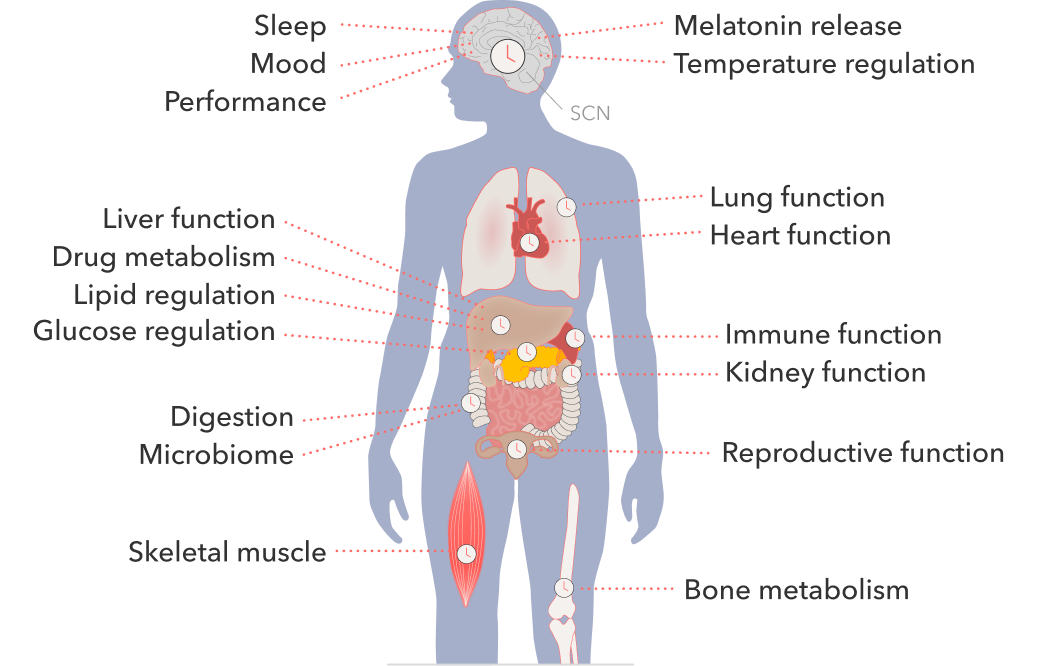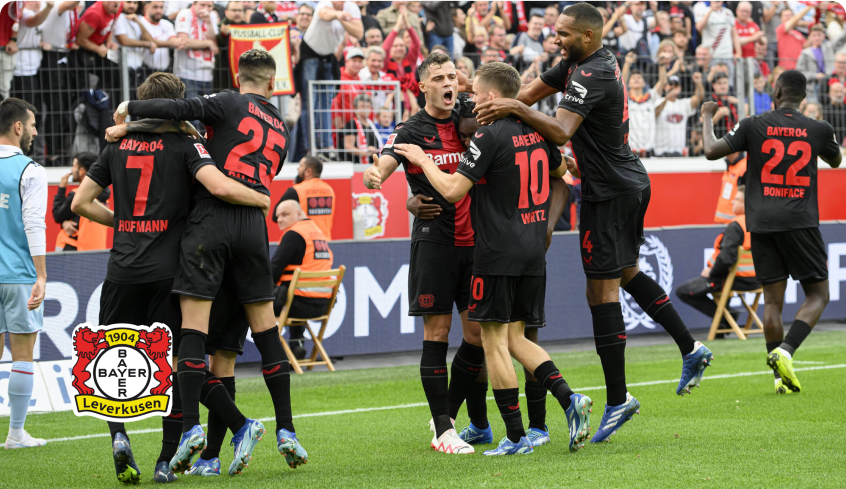At your best.
When it matters.
We prepare athletes for
competition,
and astronauts
for rocket launches.

Circadian rhythms in
athletic performance
Enormous effort is dedicated to optimizing elite athletes’ performance, including complex training schedules, detailed nutritional plans, and an emphasis on psychological health and mental well-being. However, an important factor often neglected is the impact of the internal circadian clock on performance, and whether this natural circadian peak in performance aligns with game time.
"I just had that little bit of extra capacity, brain power, and energy left for the crucial moments. Anything extra you can bring to the table is going to help you in that moment – and I’m sure that’s part of why I won the world championship.”
Nico Rosberg
VC Entrepreneur & 2016 Formula 1 World Champion
Circadian rhythms
regulate
nearly all of
our biological systems
Aligning circadian rhythms
with
game time for
peak performance
The circadian science
in peak performance
The circadian clock in our brain generates near-24-hour rhythms that regulate many aspects of physiology, metabolism, and behavior, including sleep-wake cycles, alertness, performance, mood patterns, and various metabolic processes. This internal clock differs between individuals, as demonstrated by the degree to which one is a “morning type” or “evening type,” or how one adapts to eastward or westward travel. It has long been understood that many physiological factors relevant to sports performance exhibit daily rhythms or are sensitive to sleep loss (1-2). Examples include daily fluctuations in muscle strength, shot accuracy, and anaerobic performance, as well as circadian influences on cardiac and lung function, metabolism, and appetite. The impact of the circadian clock on performance has been demonstrated across various sports, including soccer, swimming, professional and college basketball, and professional baseball and football. Multiple studies highlight the effects of travel direction, game time, and circadian rhythms on race times, technical skills, and winning percentages (3-14).
“We use Timeshifter with our elite level athletes to give them a competitive edge.”
Michael Watts, Under Armour
“We are happy with the partnership with Timeshifter that started in November 2023 with our Europa League away game against Qarabag in Azerbaijan. It means the highest possible level of preparation of our players for the many games in different time zones. The fixture list is packed and the slots are demanding due to the short intervals between the individual games on different continents. Thanks to individually organised plans for our players’ games in international and European competitions, we have found an effective answer to jet lag and thereby achieved greater performance levels despite the big workload.”
Bayer 04 Leverkusen
Why circadian misalignment
hurts
sports performance
The effects of the circadian clock on performance are well documented and result from a misalignment between the natural circadian rhythm in peak performance and scheduled match times. This misalignment can occur due to travel across time zones, causing jet lag, or scheduling team activities (e.g., training, meetings, and sleep) in ways that conflict with natural circadian rhythms. While jet lag from time zone travel is one issue, a greater challenge lies in variations in game start times, which can cause significant misalignment even without travel. Each hour of game time change is equivalent to traveling to a different time zone, even without leaving the area. The negative effects of changes in time zone and game time (often both simultaneously, compounding the issue) are most apparent during away games.
“Timeshifter plays a crucial role in our players jet lag management. Its simple and effective strategies makes it an ideal support tool to maximize time zone adaptations in international football when players have to cross the Atlantic to represent Canada and play within a few days of travel.”
Canadian Soccer
“Timeshifter has been a real game changer for me when traveling across time zones battling jet lag. It helps me perform at my highest level and is now part of my competitive edge. I can highly recommend all travelers use it.”
Holger Rune
Maximize sports performance
by aligning circadian rhythms
The key to addressing the circadian factors in sports performance lies in resetting players’ circadian rhythms to align with game start times, especially for away games (even within the same time zone). Based on core body temperature rhythms, performance typically peaks around 5 p.m., although individual differences (chronotypes) influence this.
We help astronauts
perform at their best

Circadian clock
optimization for athletes
The primary goal of Timeshifter’s concierge service is to shift players’ circadian clocks throughout the season to align more closely with game times, particularly for away games. While there are limitations, such as inflexible schedules, we propose day-to-day adjustments to enhance general circadian adaptation. These include revising training and meeting times, as well as game-specific changes, such as light exposure schedules, sleep strategies during travel, and adjustments to game-day routines.
"As a tennis player, I know what impact traveling worldwide has on my performance. Timeshifter has been a game changer for me, reducing my jet lag by nearly 100% when crossing time zones.”
Sem Verbeek
2025 Wimbledon Mixed Doubles Champion
Concierge service
For athletes with a need for more complex circadian optimizations to perform at their best.
Contact us









